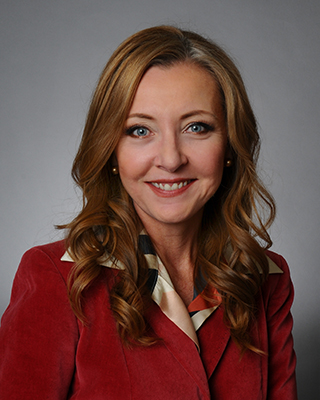It’s another Washington back-to-school season, which means lots of crayons, calculators, craft paper, and, sadly, controversy.
Seattle Public Schools proclaims that "families are our students' first and most important teachers" and "encourages families to talk with their children about their own cultural values and beliefs. Lessons at school create opportunities for meaningful conversations at home. We hope families will join us in sharing messages of kindness, acceptance, and standing up to bullying.” (Scroll down, click “SPS for ALL: English.”)
Yet the district is simultaneously banning parents from opting their children out of its LGBTQ-Inclusive Instruction—a hypocritical move garnering national attention (see here and here, for example).
The Irony of Anti-Bullying Bullying
SPS declares on its website: "There is no option to 'opt students out' of learning about particular identities or groups of people." (Emphasis original.) The district claims this mandate prevents bullying and creates "safe and welcoming environments."
So, SPS is bullying parents in the name of preventing bullying.
And their stated rationale? SPS says its “guidance” is “reinforced by OSPI…the policies of other major urban districts (including the states of California and New York), and the outcomes of federal cases around the country.”
Regardless of what the big, cool non-Washington school districts are doing, existing law and the latest U.S. Supreme Court ruling back up parents wanting to opt their children out of instruction they find objectionable.
What the Law Actually Says
Washington's SB 5462 requires inclusive curricula and instructional materials. But nowhere does this law restrict parental rights. In fact, it does the opposite:
- By June 1, 2025, the Washington State School Directors' Association must update its model policy for instructional materials.
- By October 1, 2025, districts must conform to these policies, which require active parent recruitment on instructional materials committees and detailed complaint procedures.
- Parents can already exempt children from comprehensive sexual health education, as SPS acknowledges. (See here, here, and here.)
State law reinforces parental rights—it doesn't eliminate them.
WSSDA model policy and procedure for school districts are forthcoming and were delayed in order to incorporate legal guidance from the latest U.S. Supreme Court on parental rights in education.
Supreme Court Schooling
In late June 2025, the U.S. Supreme Court delivered a lesson SPS apparently skipped in Mahmoud v. Taylor. Maryland parents from Montgomery County Public Schools sued the district when it ended parental opt-outs from its LGBTQ instruction.
Writing for the 6-3 majority, Justice Samuel Alito explained:
We acknowledge that “courts are not school boards or legislatures, and are ill-equipped to determine the ‘necessity’ of discrete aspects of a State’s program of compulsory education.” … It must be emphasized that what the parents seek here is not the right to micromanage the public school curriculum, but rather to have their children opt out of a particular educational requirement that burdens their well-established right “to direct ‘the religious upbringing’ of their children.” (p. 40)
Furthermore:
Although the [Montgomery County Public Schools] board may generally have a compelling interest…in maintaining a safe and non-disruptive learning environment, … the board’s argument is weakened by the opt-outs that it allows in other scenarios – for example, from sex education. “This robust ‘system of exceptions’” also “undermines the Board’s contention that the provision of opt outs to religious parents would be infeasible or unworkable,” Alito wrote. (See also p. 38 here.)
The Real Lesson
SPS claims to champion inclusion while practicing exclusion of parents' voices. A cursory review of the districts' K-5 Gender Lessons reveals content that goes far beyond neutral diversity promotion or safety.
Importantly, the U.S. Supreme Court ruled that “not every curriculum dispute triggers” a claim under the free exercise clause of the First Amendment. It distinguished between passive exposure to diverse ideas and curricula "designed to present certain values and beliefs as things to be celebrated, and certain contrary values and beliefs as things to be rejected."
The Court, “found that [Montgomery County Public Schools' policy] amounted to... a constitutional burden on religious formation,” especially “when combined with mandatory attendance, a lack of opt-out rights, and the young age of the students – some as young as five…”
If districts want inclusion without coercion, they must offer parents meaningful participation. “Ignoring procedural pluralism – by eliminating opt-outs and dismissing religious objections as mere bigotry – risks violating constitutional protections…Opt-out policies, clear notice, and open dialogue with families aren’t threats to diversity – they’re how pluralism works in practice.”
What will this year’s biggest back-to-school lesson be if Seattle Public Schools doesn’t change its no-opt-out policy? Sometimes the bullies are running the anti-bullying program.
Thankfully, the highest court in the land has (again) affirmed parents’ constitutional rights to direct the education and upbringing of their children.






